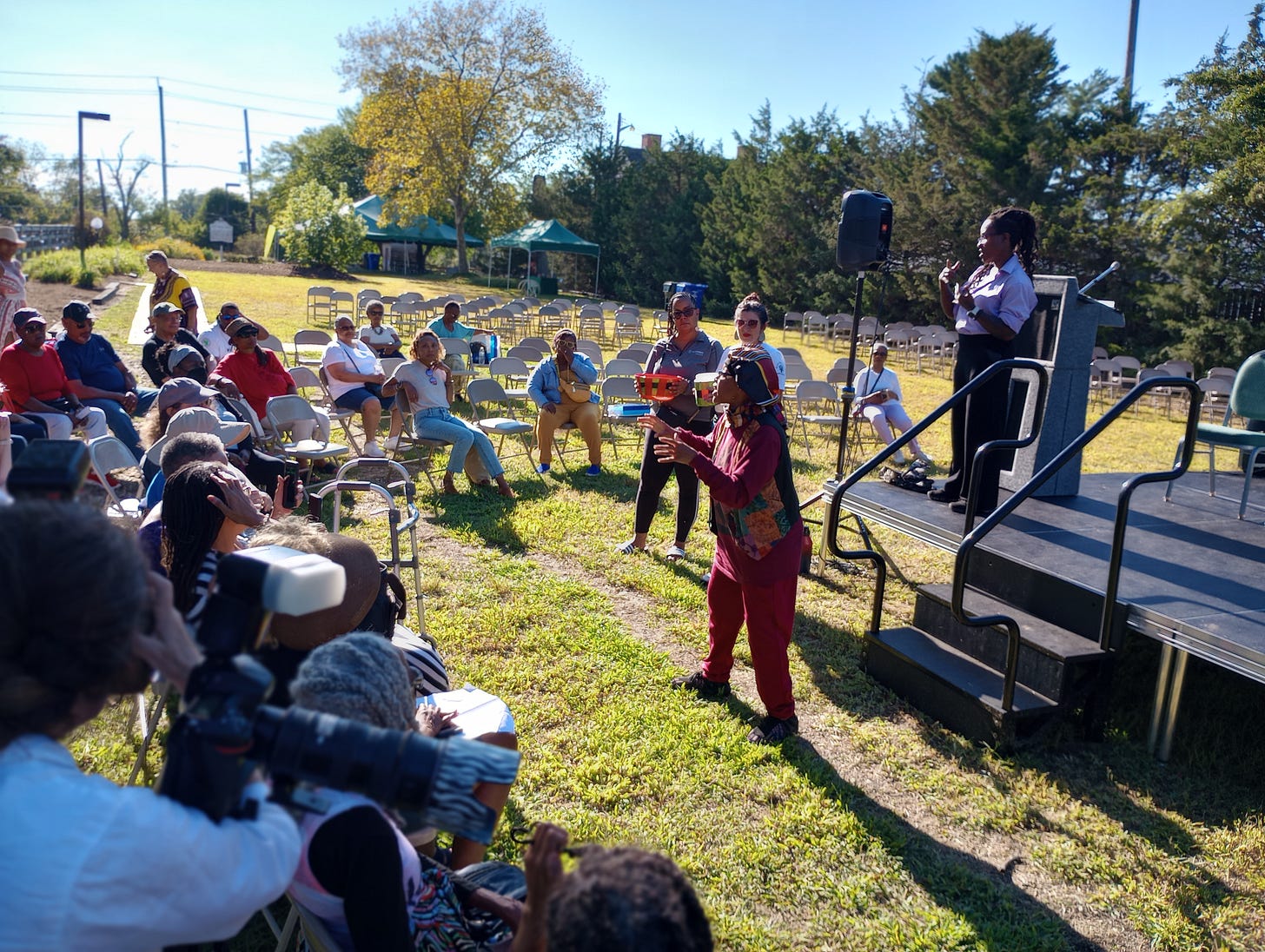Echoes of The Enslaved at The Surratt House Museum
Setting the record straight about the Surratt Family

Clinton, Maryland— On Sept. 16, residents from South County (including descendants of enslaved Marylanders) archaeologists, and scholars, descended upon the Surratt House Museum for Echoes of the Enslaved event.
The engaging event began at 12 p.m. but didn’t end until 9:30 p.m. The museum held an African drumming session (in which the executive director, Veronica Gallardo participated), a panel discussion, and a fireside chat. Local vendors sold products, museum staff gave several tours to attendees, and the Surratt House Museum showcased its latest findings about enslaved people.
The research was conducted by W. Antonio Austin, a doctoral candidate at Howard University. Austin, who did his work as an intern at the Surratt House Museum, said the research traces the lineages of the Black enslaved people, whom the Surratt family considered property. One thing that Austin points out is that the Surratt House was not considered a plantation - but a farm. Austin explains his work below.
During the first half of the event, 12 - 4 p.m., attendees were invited to engage community vendors. The Maryland-National Capital Park and Planning Commission showcased the Sankofa Mobile Museum, which allowed attendees to have a virtual reality experience. Additionally, Prince George’s County archaeologists showcased artifacts connected to enslaved Black people.
After that period, attendees were asked to attend a panel discussion where Joe McGill, author of “Sleeping with the Ancestors: How I Followed the Footprints of Slavery,” Jana Parker, deputy executive director of PG Change Makers, a local non-profit, and Dr. Valarie C. Johnson, professor of political science at DePaul University, and author of “Black Power in the Suburbs: The Myth or Reality of African American Suburban Political Incorporation,” discussed local politics, racism, the importance of community engagement, and history.
You can view the panel discussion here.
The night ended with an hour-and-a-half fireside chat. McGill led one group, while Parker and Johnson led another group.
You can read our story on the museum here.




